Teacher perception of engagement and its relationship with some psychosocial risk factors in a group of public institutions in the educational sector in Colombia
Percepción docente frente al engagement y su relación con algunos factores de riesgos psicosociales en un grupo de instituciones públicas del sector educativo en Colombia
Main Article Content
The present study is part of an investigation derived from the international Macroproject WONPUM, working in human services under the new public management, meanings, risks, and outcomes in the teaching profession of some institutions in Colombia. Specifically, it analyzes the construct of Engagement defined by Salanova and Shaufeli (2009) as "a positive mental state related to work and characterized by vigor (high levels of energy and mental resilience), dedication (high work involvement), and absorption (high state of concentration and immersion)."
This work focuses on the relationship that Engagement has with some categories or dimensions of psychosocial risks in education, specifically in teaching. Data collection was carried out using the instrument designed by Blanch, Sahagún, Cantera, and Cervantes (2010) cited by García Solarte (2011), already validated and proposed within the methodological framework of the WONPUM Macroproject, with a sample of 498 respondents in 19 educational organizations. Of these, 61% are part of higher education institutions, 24% of secondary education, and 15% of basic education.
This research highlights the importance of delving into the study of human behavior at work from positive psychology, being indispensable for organizations' productivity, which is given by human talent management, where human talent is the fundamental basis for the success and sustainability of the organization.
Downloads
Article Details
Arenas Ortiz, F. Factores psicosociales intralaborales y Engagement en el trabajo en una organización del sector salud de la ciudad de Cali-Colombia. (2012). Santiago de Cali: Pontificia Universidad Javeriana.
Benedetti, Daniela. (2011). Relacion entre woek engagement y creencias de aut eficacia: Un estudio piloto en tres instituciones educativas de la ciudad de Cartagena. Universidad de la Sabana.
Caballero, C.; Abello Llanos, R. y Palacio Sañudo, J. (2006). Burnout, Engagement y rendimiento académico entre estudiantes universitarios que trabajan y aquellos que no trabajan Psicogente. 9 (16) 11-27.
Durán, M.; Entremera, N. y Montalban, M. (2005). Engagement y Burnout en el ambito docente: Analisis de sus relaciones con la satisfaccion laboral y vital en una muestra de profesores. Revista Psicologia del trabajo y de las organizaciones. 21 (1-2) 145-158.
García Solarte, M. (2011). Los macro-procesos un nuevo enfoque al estudio de la Gestion Humana. Cali: Universidad del Valle. DOI: https://doi.org/10.25100/peu.96
Kompier, M. A. (2006). New system o work organization and worker´s health. Skandinavian journal of work Enviroment and Health. 32 (6) 421-430. DOI: https://doi.org/10.5271/sjweh.1048
Papalia, D. (2008). Desarrollo humano. McGraw Hill.
República de Colombia. Ministerio de Educación Nacional. (1980). Decreto número 80. Bogotá.
Salanova, M. (2009). El engagement en el trabajo. Alianza.
Salanova, M.; Shaufeli, W.; Llorens, S.; Peiró, J. y Grau, R. (2000). Desde el Burnout al Engagement ¿una nueva perspectiva? Revista de Psicologia del trabajo y de las organizaciones. 16 (2) 117-134.
Schaufeli, W. (2002). The measurement of Engagement and burnout. En M. Salanova, V. Gonzalez-Roma, & A. y Bakker. Journal of Hppiness Studies. (3) 71-92. DOI: https://doi.org/10.1023/A:1015630930326
Seligman, M., & Czikszentmihalyi, M. (2000). Positive Psychology: An Introduction. American Psychologist. 55 (5) 118-125. DOI: https://doi.org/10.1037//0003-066X.55.1.5
Snyder, C. L. (2002). The future of positive psychology. A declaration of independence. Oxford University Press. DOI: https://doi.org/10.1093/oso/9780195135336.003.0055
Snyder, C. y López, S. (2002). The handbook of positive psychology. Oxford University Press.
Ulrich, D. (1997). Human resource champions. Harvard Business School Press.
Vila, N; Kuster, I. y Pardo, Elena. (2012). Antecedentes y efectos del Burnout-Engagement del vendedor. Cuadernos de economia y direccion de la empresa. (15) 154-167. DOI: https://doi.org/10.1016/j.cede.2012.02.001



 Perfil Google Scholar
Perfil Google Scholar







